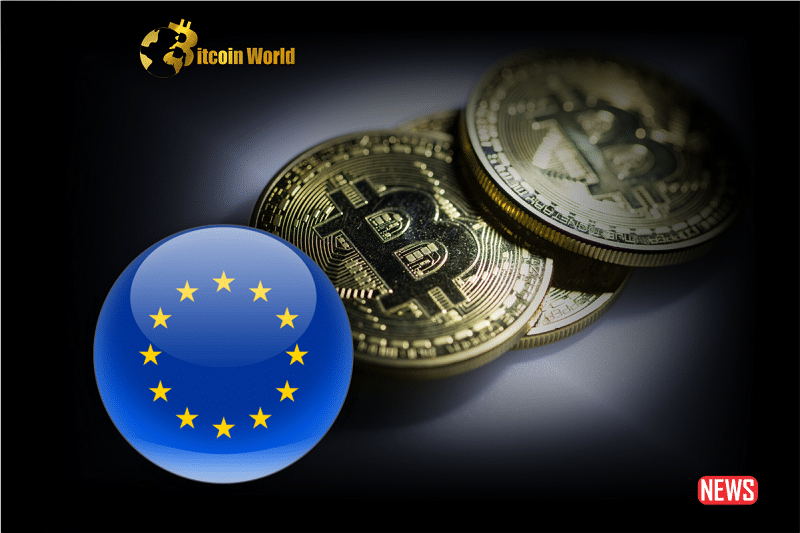Summer in Europe has brought a refreshing breeze for the digital asset industry, a stark contrast to the regulatory chill felt across the Atlantic in the United States. While the US grapples with slow approvals and enforcement actions, Europe is laying down a clear welcome mat for crypto innovation. Let’s dive into this transatlantic tale of two regulatory approaches and see who’s positioning themselves to lead the future of digital finance.
Europe Heats Up: A Welcoming Crypto Climate
Europe’s proactive stance on digital assets is turning heads, and for good reason. This summer alone has been a landmark period:
- First Bitcoin Spot ETF Launches: Amsterdam celebrated the listing of the Jacobi FT Wilshire Bitcoin ETF, a pioneering move for spot market ETFs in Europe. This signals a growing acceptance and maturity of digital assets within traditional financial frameworks.
- MiCA Framework Takes Shape: The EU’s Markets in Crypto Assets (MiCA) regulation is providing much-needed clarity for businesses operating with digital assets. This comprehensive framework is designed to foster innovation while ensuring consumer protection and market integrity.
Lars Christensen, CEO of Seier Capital in Switzerland, aptly points out that Europe seems to be “a bit ahead of the game” in terms of regulatory clarity. This clarity isn’t just good for businesses; it’s attracting them.
Europe vs. US: A Startup Springboard
The numbers speak volumes. In 2022, Europe surpassed the US as the preferred launchpad for digital asset startups. Consider these compelling statistics:
| Region | Digital Asset Startups Launched (2022) | Venture Capital Investment Growth |
|---|---|---|
| Europe | 3,977 | 14% increase |
| United States | 3,357 | 4% decrease |
These figures highlight a significant shift. While the US was once the undisputed leader in fostering innovation, the regulatory landscape is now pushing entrepreneurs and investment towards Europe.
US Regulatory Winter: A Frigid Reception for Crypto?
Across the pond, the atmosphere for digital assets feels decidedly colder. Despite significant efforts from major financial players, the US regulatory environment remains uncertain and, at times, hostile.
- ETF Approval Gridlock: Despite high-profile applications from giants like BlackRock and Fidelity for spot Bitcoin ETFs, the Securities and Exchange Commission (SEC) has been slow to act, causing frustration and market drag.
- Crackdown on Crypto Exchanges: Simultaneously, the SEC has intensified its enforcement actions against crypto exchanges, creating a climate of fear and uncertainty within the industry.
- Legislative Logjam: Attempts in Congress to pass comprehensive crypto regulation have stalled, leaving a patchwork of unclear rules and definitions.
This regulatory ambiguity is not just an inconvenience; it’s a significant impediment to growth and innovation. As Dave Weisberger, CEO of CoinRoutes, suggests, while Europe’s ETF embrace is positive, the real game-changer would be Wall Street’s full involvement – something currently hindered by the US regulatory approach.
Why the Regulatory Divergence? Clarity vs. Vagueness
The contrasting approaches stem from fundamental differences in regulatory philosophy:
- Europe: Bespoke and Clear. MiCA exemplifies Europe’s approach: creating specific, tailored regulations for digital assets. This provides businesses with a clear understanding of the rules of the game, fostering confidence and investment.
- US: Vague and Enforcement-Led. The US system, often described as intentionally vague, relies heavily on enforcement actions to define the regulatory boundaries. This creates uncertainty, stifles innovation, and can lead to regulatory “turf wars” between agencies.
This lack of clarity in the US is prompting some companies to consider relocating overseas, seeking more predictable and supportive environments.
The ETF Example: Europe’s First-Mover Advantage
The difference in ETF adoption is a prime example. Europe has already embraced spot Bitcoin ETFs, while the US remains hesitant. According to Christensen, the debate around market manipulation – a key concern in the US ETF discussions – has been less of a hurdle in Europe. This suggests a more pragmatic and forward-looking regulatory mindset.
The Stakes for the US: Losing Ground in the Global Crypto Race?
Despite possessing deep capital markets and a vast talent pool, the US risks squandering its advantages if it fails to adapt its regulatory approach. Lowell from Perkins Cole cautions against US “short-sightedness,” warning that clinging to an outdated regulatory mindset could lead to a loss of global financial leadership.
While the US remains a financial powerhouse, its regulatory inertia could have significant consequences:
- Innovation Exodus: Companies may continue to move operations and talent to more welcoming jurisdictions, diminishing the US’s role in the digital asset space.
- Missed Economic Opportunities: The US could miss out on the economic growth and job creation associated with a thriving digital asset industry.
- Global Leadership Erosion: Failure to adapt could weaken the US’s influence in shaping the future of global finance.
Conclusion: Time for the US to Warm Up to Crypto?
Europe’s proactive and clear regulatory framework is positioning it as a leader in the digital asset revolution. The US, while still a dominant financial force, is at a crossroads. To maintain its competitive edge and shape the future of digital finance, the US must move swiftly to provide regulatory clarity and foster a more welcoming environment for crypto innovation.
The world of digital assets is evolving rapidly. The question is: will the US adapt and lead, or risk being left behind in the crypto cold?
Disclaimer: The information provided is not trading advice, Bitcoinworld.co.in holds no liability for any investments made based on the information provided on this page. We strongly recommend independent research and/or consultation with a qualified professional before making any investment decisions.




